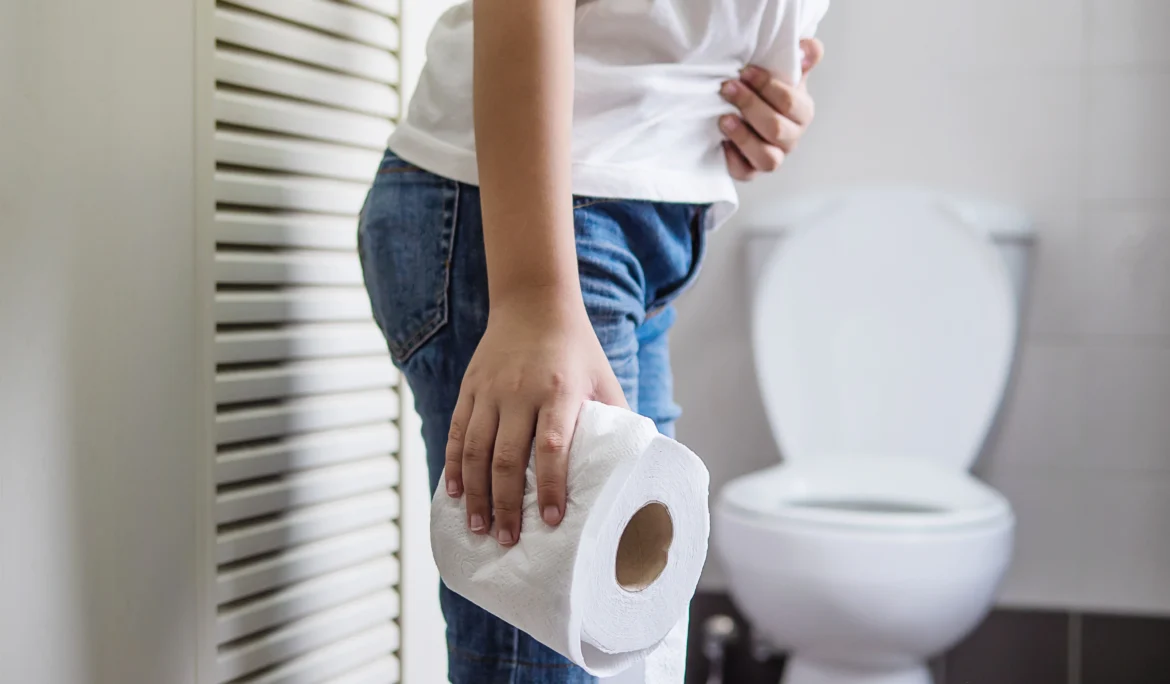Constipation is a common gastrointestinal issue that affects people of all ages, causing discomfort and also negatively affects their daily life activities. Dr. Rohit Goyal, who is one of the top Gastroenterologists in Dwarka, Delhi, gives valuable insights about constipation, causes, symptoms, and treatment through this detailed article.
What is Constipation?
Constipation is a condition characterized by infrequent bowel movements, difficulty passing stools, or a feeling of incomplete bowel movement. While occasional irregularity is normal, consistent constipation needs to be treated immediately.
What are the Causes of Constipation:
Constipation is a disorder or condition that can have multiple causes. The following are the known causes:
1. Dietary Factors
- Lack of fiber: A diet that is low in fiber causes constipation. Fiber adds bulk to the stool, making it easier to pass through the digestive tract.
- Inadequate water intake: Dehydration hardens the stools, making them more difficult to pass during bowel movements.
2. Lifestyle Choices
- Lack of physical activity slows down the digestive system, affecting your stomach and also appetite.
- Ignoring the urge: Suppressing the natural urge to have a bowel movement can contribute to constipation over time.
3. Medical Problems or conditions
- Irritable Bowel Syndrome or IBS can cause many different types of digestive issues, including constipation.
- Hypothyroidism: An underactive thyroid slows down metabolism, affecting bowel movements.
- Diabetes: Diabetes if severe leads to nerve damage, impacting the functioning of the digestive system.
4. Medicines:
– Certain types of medicines, including opioids, antacids with calcium or aluminium, and some antidepressants, cause side effects like constipation.
What are the Symptoms of Constipation?
The most common symptoms of constipation are mentioned below:
- Infrequent Bowel Movements: Bowel movements less than three times a week indicate constipation
- Difficulty Passing Stool: Straining during bowel movements and a feeling of incomplete evacuation.
- Abdominal Discomfort: Bloating, cramping, and abdominal pain may accompany constipation.
- Hard Stools: Stools that are dry, lumpy, or difficult to pass are symptoms of constipation.
When to consult a doctor?
While occasional constipation is normal in busy life and doesn’t need any immediate attention, regular symptoms or the presence of the following signs means you must visit a gastroenterologist like Dr. Rohit Goyal:
- Blood in Stool or Rectal bleeding is a sign of an underlying issue and should be evaluated by an experienced gastroenterologist.
- Unexplained Weight Loss without changes in diet or exercise requires immediate medical attention. You must go to the doctor if you feel this.
- Intense abdominal pain, especially if accompanied by vomiting, should be addressed promptly.
Risks when you don’t see a doctor after regular constipation symptoms?
Constipation is not directly related to serious conditions like bowel obstruction or cancer, burt it can be an initial symptom of these conditions
For certain bowel pathologies illike IBD and intestinal TB, intermittent pain with episodes of constipaion can be initial symptoms of disease.
As for cancer, some types of cancer can cause symptoms such as constipation. Colon cancer, for example, impacts or leads to changes in bowel habits, including constipation. However, constipation itself is not a direct cause of cancer
How a doctor can diagnose constipation?
Dr. Rohit Goyal uses his techniques and exprtise to diagnose and identify the root cause of constipation:
- Patient History: Understanding dietary habits, lifestyle choices, and medical history provides information about eating habits & digestive cycle.
- Physical Examination: Abdominal examination and digital rectal examination help assess the severity of constipation
- Colonoscopy: This procedure allows for a thorough examination of the colon, identifying any abnormalities.
- Blood Tests: Blood tests help rule out underlying medical conditions that is causing the constipation.
Constipation Treatment in Dwarka
Dr. Goyal how can constipation be treating while addressing the specific factors contributing to each patient’s condition:
- Dietary Modifications: Increasing fiber intake through fruits, vegetables, and whole grains helps promote regular bowel movements.
- Hydration: Ensuring an adequate water intake softens stools and facilitates easier passage.
- Lifestyle Changes: Encouraging regular physical activity and addressing sedentary habits lead to improved bowel function.
- Medication: In some cases, laxatives or prescription medications may be recommended for short-term relief.
How to prevent constipation and stay healthy?
To prevent constipation and maintain optimal digestive health, Dr Rohit Goyal recommends the following strategies:
- Balanced Diet: A diet rich in fibre, including fruits, vegetables, and whole grains, supports healthy digestion.
- Adequate Hydration: Drinking enough water throughout the day helps maintain stool consistency.
- Regular Exercise: Incorporating regular physical activity promotes overall digestive well-being.
- Listen to Your Body: Responding to the natural urge to have a bowel movement prevents the accumulation of stool.
Constipation is a very common digestive concern that can significantly impact an individual’s life. Dr. Rohit Goyal’s expertise in gastroenterology has helped more than 5000 patients get rid of problems like constipation, piles, fissures etc. Patients can always visit him for a second opinion on ongoing treatment or consult him to start their treatment and get cured.













